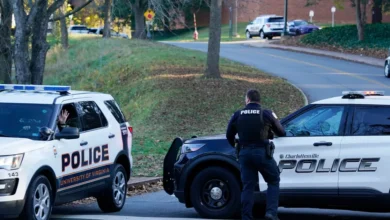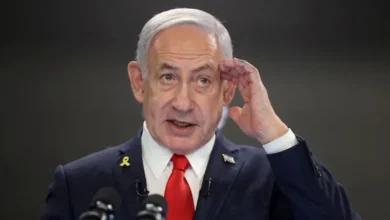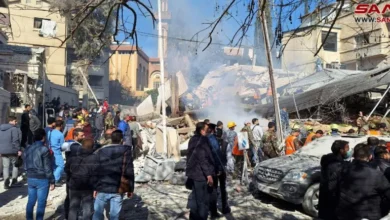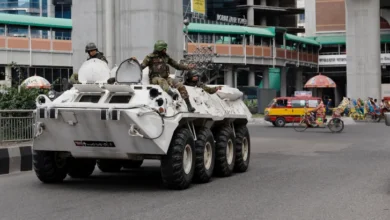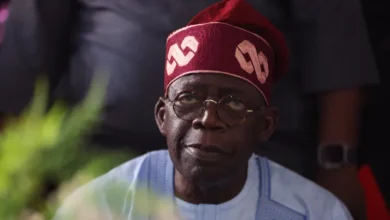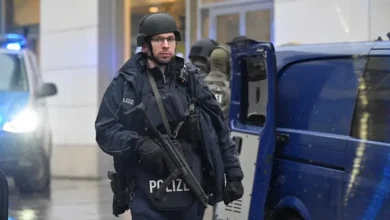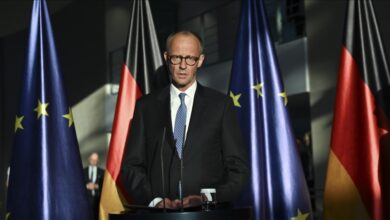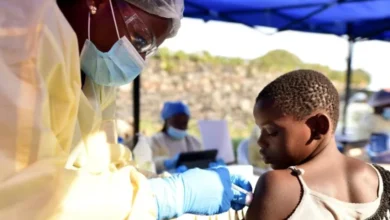Kenyan demonstrators clash with police as 3-day protest begins
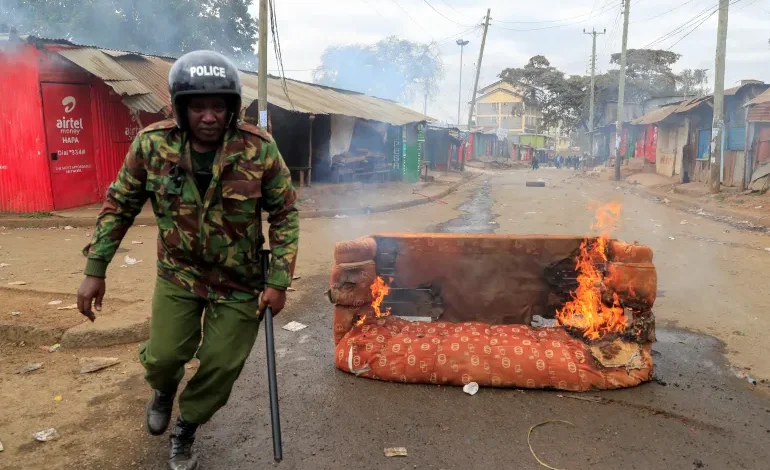
About 100 protesters hurled rocks at police in the Kibera neighbourhood of Nairobi on Wednesday morning as three days of demonstrations against the cost of living and tax hikes kicked off in Kenya.
Protesters burned tyres in Kibera and were met with volleys of tear gas by police.Kibera, a stronghold for veteran opposition leader Raila Odinga who represented the community in parliament from 1993-2003, has often been a flashpoint for standoffs with security forces.
But Al Jazeera’s Catherine Soi, reporting from Nairobi, said the situation was largely calm elsewhere in the capital. Authorities had announced that schools would close on Wednesday and the city centre was largely deserted with many businesses shuttered and shops closed.
She said government forces have been deployed in “hotspot areas where protests normally occur” within the capital. “But right now, it very much seems that people are staying away,” she added. “[They] have decided to stay home and wait out the situation.”
“There’s a very huge deployment of security forces, not just in Nairobi but in different parts of the country as well. The police are using tear gas and we have also seen in previous protests that police used a very big force to deal with protesters,” Soi added.
The Nation newspaper reported that police arrested suspected protesters in Homa Bay in the west of the country. Another local outlet, Kenya Television Network, reported that three protesters were hospitalised in Migori, close to the Tanzanian border.
Two rounds of protests earlier this month descended into violence when police fired tear gas, and in some cases live rounds, at the crowds. At least 15 people were killed and hundreds were arrested.
Kenya’s opposition called for the protests in part because of tax hikes passed last month by the government of President William Ruto, who was elected last August pledging to champion the interests of the poor but has seen the price of basic commodities balloon under his administration.
The government says the fuel and housing levies, which are expected to raise an extra 200 billion shillings ($1.4bn) a year, are needed to help deal with growing debt repayments and to fund job-creation initiatives.Opiyo Wandayi, the minority leader of parliament, told Al Jazeera on Tuesday that the tax hikes are a “scheme to overburden Kenyans who are already burdened” and said the chances of dialogue with the government are very slim.
Churches and civil rights groups have called for Ruto and Odinga to resolve their differences through dialogue and call off the protests.
“It is not too late for Azmio [opposition coalition] to halt the planned protests and give talks another shot in the wider interest of the country,” Non-Governmental Organisation Council of Kenya Chairman Stephen Kipchumba Cheboi said in a statement on Tuesday.
Odinga has failed to win the last five presidential votes but has secured senior positions in government in the past by making deals with those in power following spasms of unrest.
The president has also accused Odinga of attempting to leverage discontent over the state of the economy to attain personal political goals.
